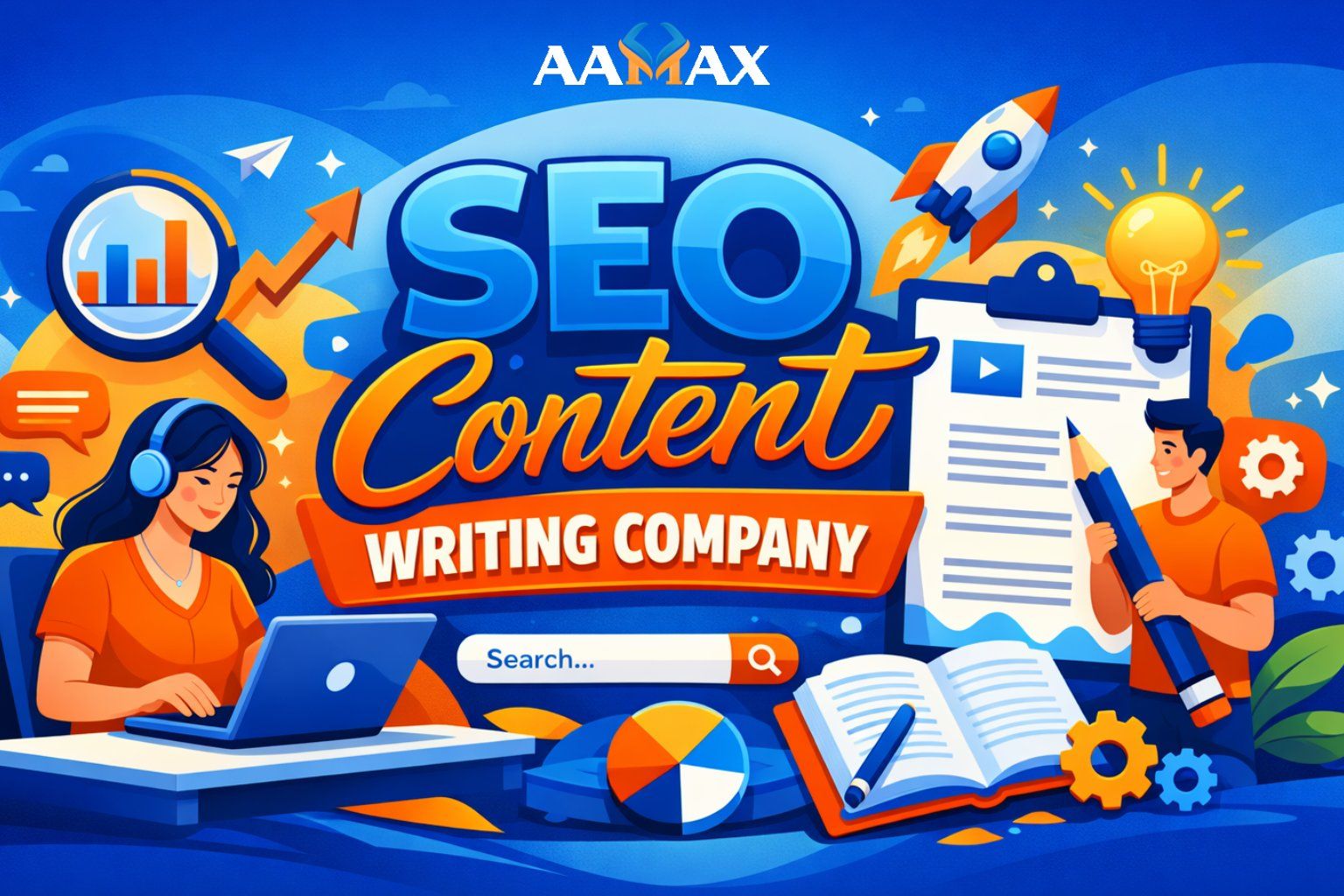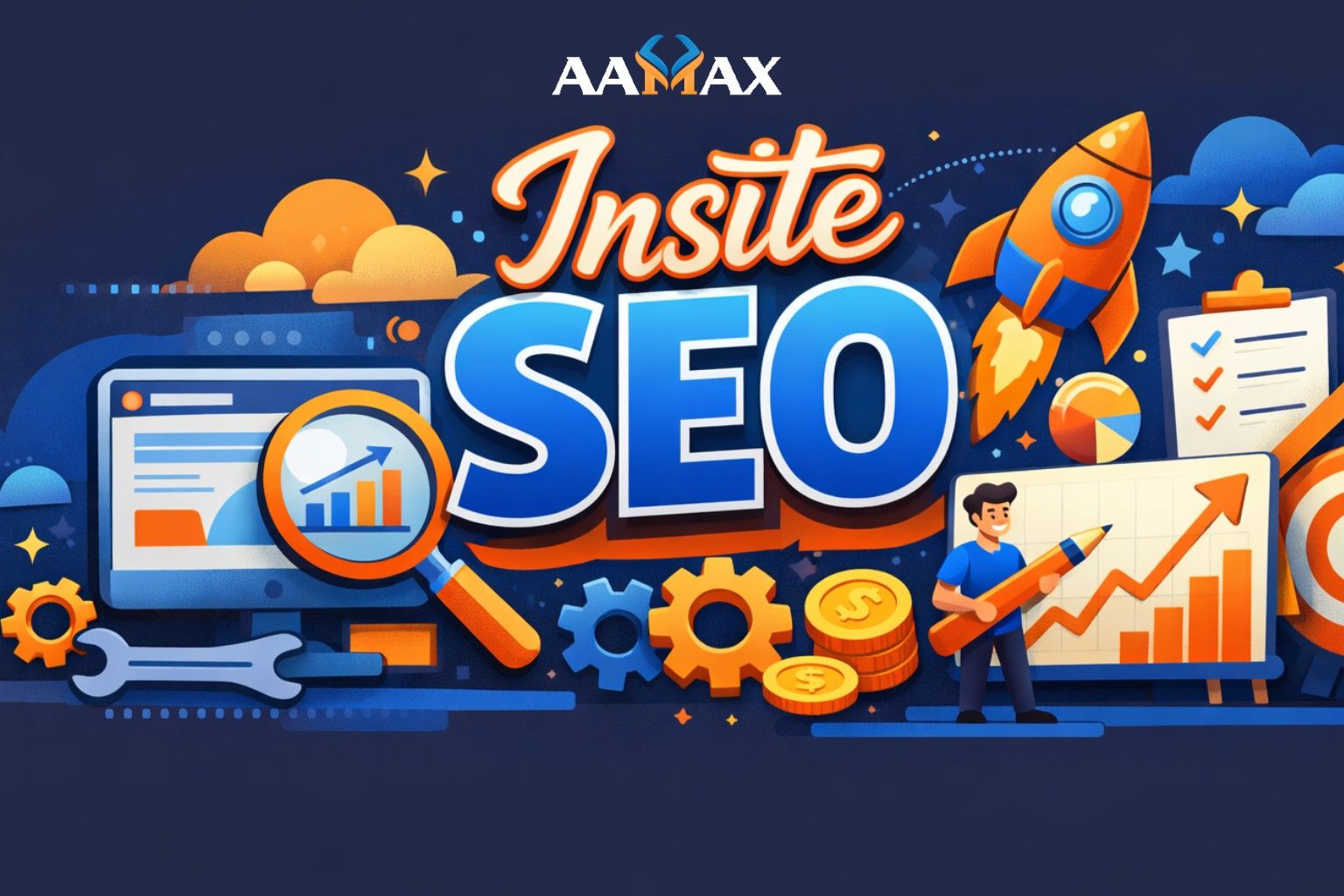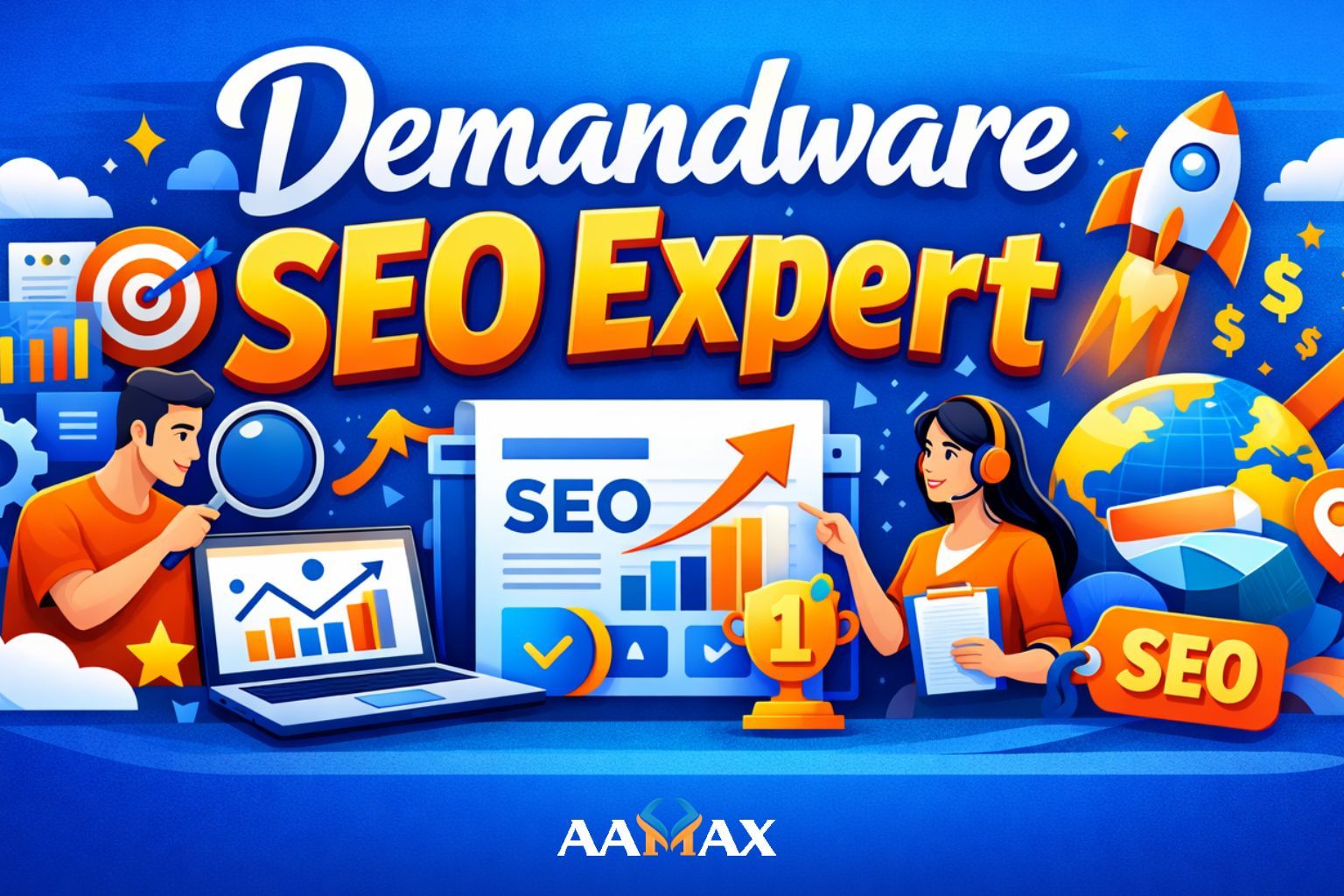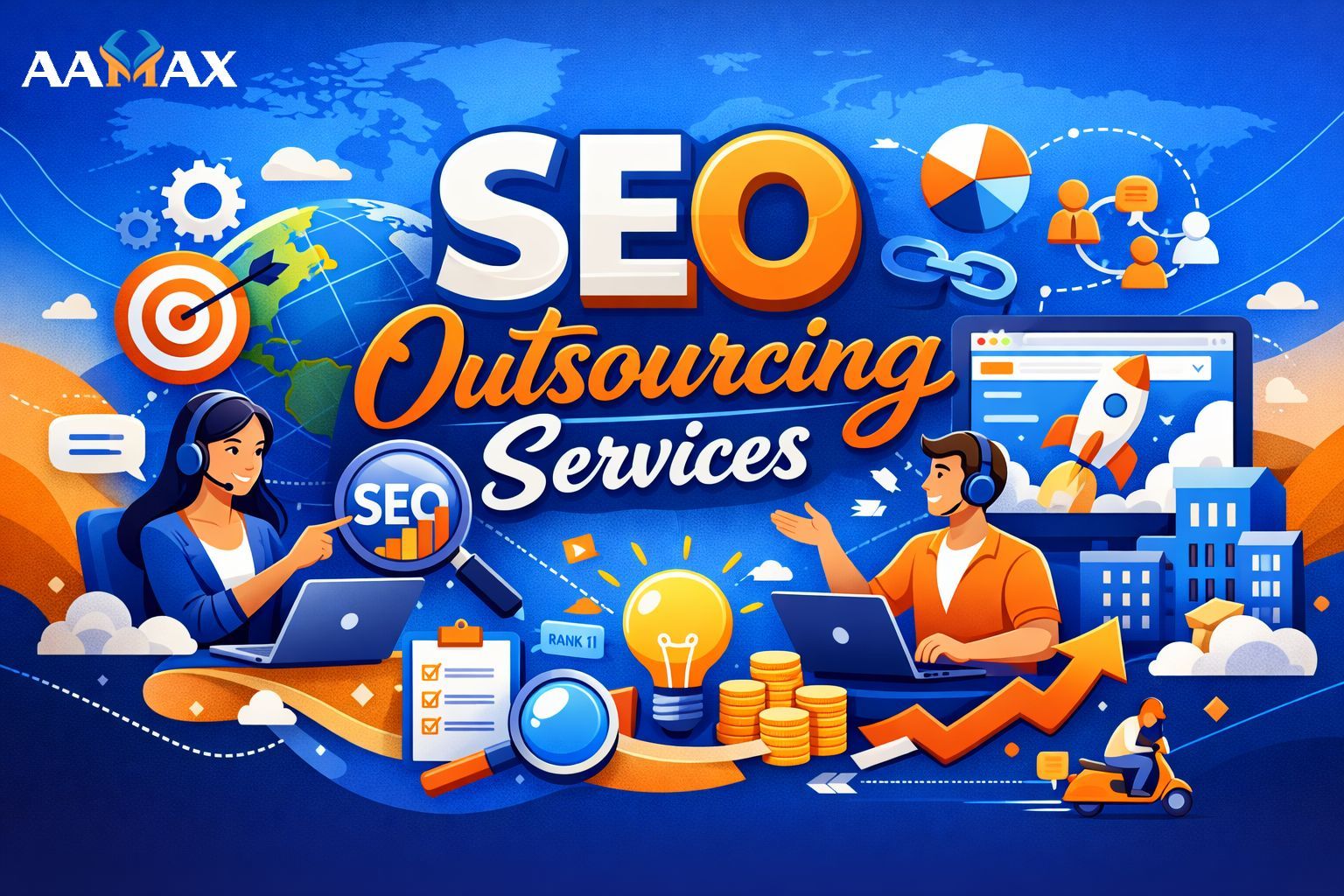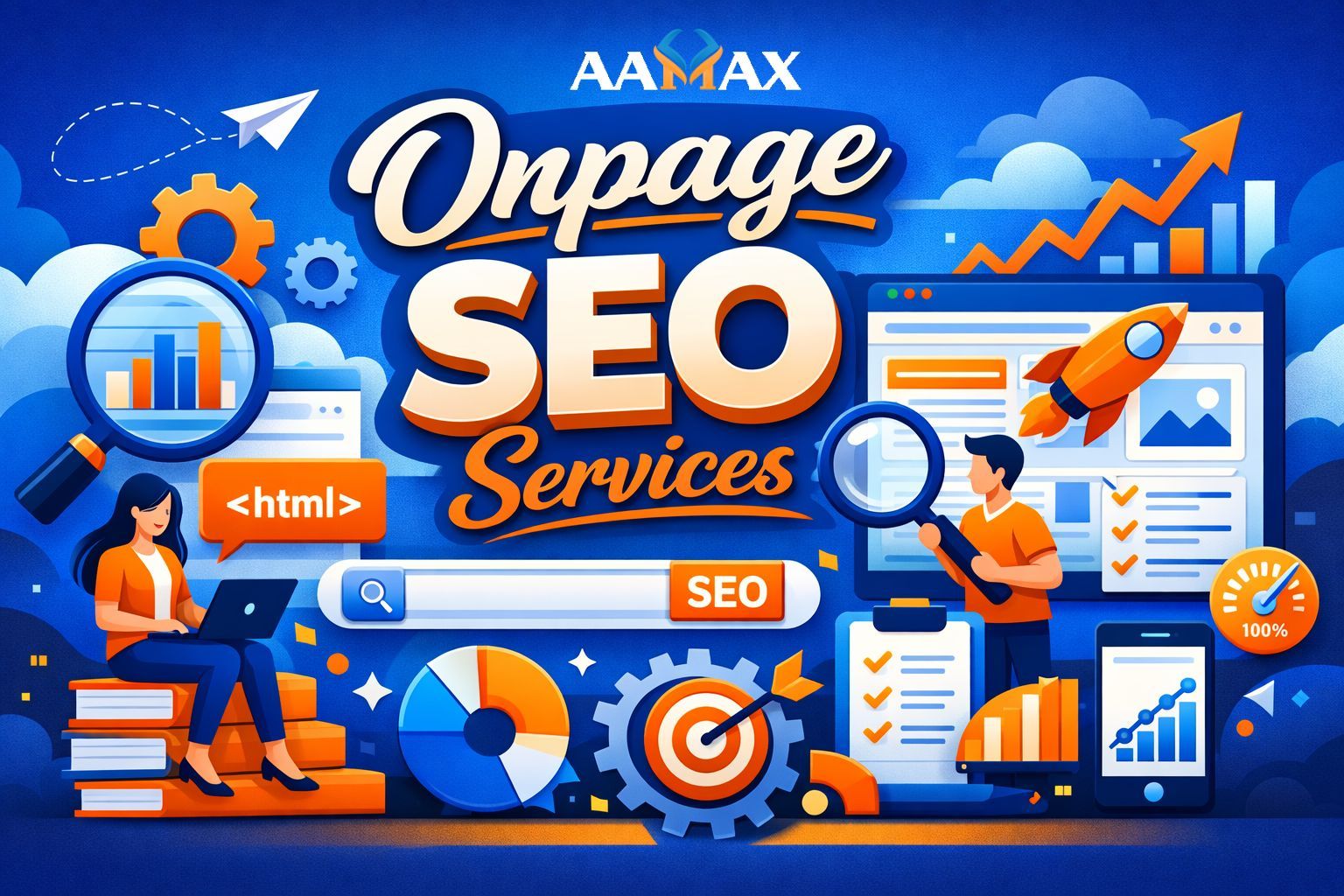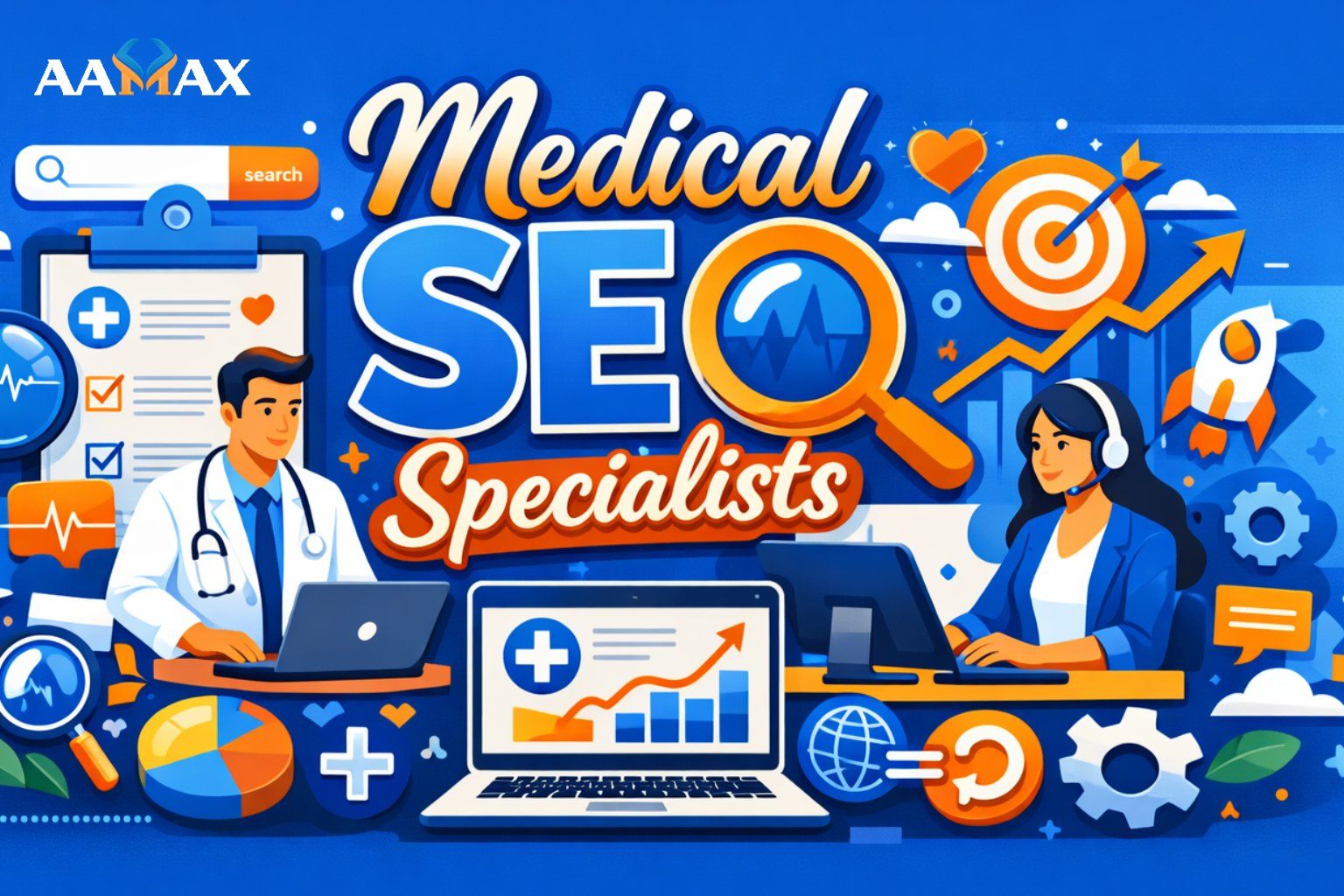
How to Use AI for On-Page SEO Optimization
In this guide, we’ll explore how to use AI for on-page SEO optimization — from keyword research and content creation to internal linking, user experience, and technical improvements. Whether you’re a content marketer, SEO professional, or website owner, this article will help you harness AI’s full potential to achieve higher rankings and better engagement.
Search Engine Optimization (SEO) is evolving faster than ever — and artificial intelligence (AI) is leading that transformation. While traditional SEO focuses on keywords, meta tags, and content optimization, AI-powered SEO takes it a step further by leveraging machine learning and natural language processing to analyze user intent, optimize pages more efficiently, and improve overall search performance.
What Is On-Page SEO?
On-page SEO refers to the practice of optimizing individual pages on your website to improve their visibility in search engines. It includes both content-related factors (like keywords, headers, and readability) and technical elements (like meta descriptions, structured data, and page performance).
Key components of on-page SEO include:
- Content quality and relevance
- Keyword optimization
- Title tags and meta descriptions
- Header structure (H1, H2, H3)
- Internal linking
- Image alt text
- URL structure
- Schema markup
- Page load speed and UX signals
AI tools can analyze, predict, and automate improvements for all these elements — saving time while boosting results.
Why AI Matters for On-Page SEO
Search engines, especially Google, now use AI-powered algorithms like RankBrain and BERT to understand user intent and page context. To rank higher, your content must align with how AI interprets meaning — not just how it matches keywords.
Here’s why AI is essential for modern on-page optimization:
- Improved Relevance: AI analyzes semantic relationships, not just keywords.
- User Intent Understanding: AI can predict what users expect from a search.
- Content Personalization: Machine learning tailors experiences for different audiences.
- Data-Driven Decisions: AI uncovers trends and optimization opportunities from large datasets.
- Automation Efficiency: AI tools save time by automating repetitive SEO tasks.
In short, using AI for on-page SEO allows you to create smarter, data-backed, user-focused content that search engines reward.
How to Use AI for On-Page SEO Optimization
Let’s break down exactly how you can leverage AI to improve every on-page SEO element on your site.
1. Use AI for Keyword Research and Semantic Analysis
Traditional keyword tools show search volume and competition, but AI-based platforms analyze context, intent, and topic relevance.
How AI Improves Keyword Strategy:
- Intent Mapping: Understand whether a keyword is informational, navigational, or transactional.
- Semantic Clustering: AI groups related terms and phrases that strengthen topical authority.
- Predictive Insights: Tools like MarketMuse and SurferSEO use machine learning to identify content gaps and ranking opportunities.
For example, if you’re writing about “AI SEO optimization,” AI tools might suggest related terms like “semantic SEO,” “AI ranking factors,” or “natural language optimization” — helping you cover all relevant angles.
2. Generate and Optimize Content with AI
AI can create or assist in writing optimized content that matches both user intent and Google’s algorithms. However, AI should be used as a collaborative assistant, not a replacement for human creativity.
Recommended AI Tools:
- Jasper / Copy.ai: For generating SEO-friendly drafts.
- ChatGPT / Gemini: For refining tone, structure, and factual depth.
- SurferSEO / Frase: For content scoring and optimization suggestions.
How to Use AI Effectively:
- Start with AI-assisted outlines and structure recommendations.
- Use AI to suggest meta tags, headings, and readability improvements.
- Review and edit AI-generated content for accuracy, tone, and originality.
AI can also evaluate your draft for keyword density, sentiment, and topical completeness, ensuring your content meets SEO best practices.
3. Optimize Title Tags and Meta Descriptions
AI tools can analyze CTR (click-through rate) data across industries and help you write more compelling title tags and meta descriptions.
Example:
Instead of a basic meta title like:
“AI Tools for SEO Optimization”
AI might suggest:
“10 Powerful AI Tools to Supercharge Your On-Page SEO and Rankings”
This title uses action words, value-driven language, and search intent alignment — all based on AI’s analysis of what users click most.
Tools for Optimization:
- SEMrush AI Writing Assistant
- Clearscope
- Outranking.io
These platforms use predictive modeling to evaluate how your title and meta description may perform in search results.
4. Enhance Readability and User Experience
Google values readability, clarity, and engagement metrics like dwell time and scroll depth. AI can assess your page’s readability and suggest improvements.
What AI Can Do:
- Analyze sentence complexity and structure.
- Suggest simpler vocabulary or phrasing.
- Identify readability scores (like Flesch–Kincaid).
- Detect missing subheadings or transitions.
Tools like Grammarly, Hemingway Editor, and LanguageTool use AI to ensure your content is clear, engaging, and easy to digest — crucial for keeping users on the page longer.
5. Optimize Internal Linking Structure
AI can analyze your entire website and suggest optimal internal links that strengthen topical authority and help Google understand content relationships.
Example AI Applications:
- Identify pages with similar topics that can link to each other.
- Suggest anchor text that improves context and SEO value.
- Detect orphan pages (content without internal links).
Tools like LinkWhisper and SurferSEO’s Internal Link Builder automate much of this process, helping you maintain a healthy site architecture.
6. Use AI for Image Optimization
Images are key for engagement but can hurt SEO if not optimized. AI tools can automatically compress, tag, and describe images without losing quality.
AI Image SEO Strategies:
- Use AI to generate alt text with natural language (descriptive and keyword-rich).
- Auto-compress images for faster load times.
- Identify missing or duplicated image metadata.
Platforms like Cloudinary, TinyPNG, and ImageKit.io use AI to balance speed, size, and quality — boosting Core Web Vitals.
7. Improve Page Speed and Technical On-Page Elements
AI-driven website auditing tools can analyze your site’s technical SEO performance and offer actionable insights.
Recommended Tools:
- PageSpeed Insights (AI-integrated)
- Screaming Frog with AI-assisted reports
- Ahrefs Site Audit AI Beta
These tools use AI to:
- Detect slow-loading elements.
- Analyze layout shifts and performance bottlenecks.
- Recommend fixes for CSS/JS optimization.
Fast-loading pages lead to better user engagement, lower bounce rates, and improved rankings — all signals Google considers essential.
8. Leverage AI for Schema Markup and Structured Data
Structured data helps search engines interpret your content contextually. AI can now generate accurate schema markup automatically.
Benefits of Using AI for Schema:
- Prevents syntax errors in JSON-LD code.
- Suggests the best schema types for each page.
- Enhances search visibility with rich snippets.
AI tools like Merkle’s Schema Generator or ChatGPT-based schema prompts can create and validate markup for articles, products, FAQs, and more.
9. Analyze User Behavior with AI Insights
Understanding how visitors interact with your pages is crucial for ongoing optimization. AI analytics tools can identify behavior patterns that affect rankings.
AI-Driven Metrics to Monitor:
- Scroll depth and engagement zones.
- Click heatmaps and session recordings.
- Conversion bottlenecks and form abandonment.
- Predictive churn or exit likelihood.
Tools like Hotjar AI Insights, Microsoft Clarity, and Google Analytics 4’s AI features reveal what users love — and what’s driving them away.
10. Personalize On-Page Content with AI
AI enables dynamic content personalization based on user data, such as location, behavior, or interests. Personalized content increases dwell time and conversion rates.
Examples:
- Displaying location-specific offers.
- Adjusting headlines based on traffic source.
- Showing related content based on browsing behavior.
AI personalization tools like Optimizely and Adobe Target make this possible at scale — improving both user satisfaction and SEO metrics.
The Role of E-E-A-T in AI On-Page SEO
Even with automation, Google’s E-E-A-T (Experience, Expertise, Authoritativeness, and Trustworthiness) remains the foundation of ranking success.
AI can help analyze and improve these signals by:
- Checking for author visibility and credibility.
- Ensuring consistent brand tone and factual integrity.
- Identifying trust gaps (missing references, low-quality outbound links).
Ultimately, AI can support — but not replace — authentic human expertise. Blending AI efficiency with expert-driven insights is the winning formula.
The Future of On-Page SEO with AI
The integration of AI into SEO is only just beginning. Expect to see:
- AI-generated dynamic metadata updated in real time.
- Predictive ranking models that anticipate Google updates.
- Voice and visual search optimization powered by AI understanding.
- AI-driven A/B testing for content and layout variations.
The future of on-page SEO will rely on machine learning models that continuously adapt to search behavior, ensuring your content remains optimized even as algorithms evolve.
Partner with Experts for AI SEO Optimization
Mastering AI-powered SEO takes time, strategy, and the right tools. That’s why it’s often best to work with specialists who understand both the technical and creative aspects of AI SEO.
You can partner with AAMAX — a full-service digital marketing company offering Web Development, Digital Marketing, and SEO Services.
AAMAX provides AI-powered SEO solutions that help businesses:
- Optimize on-page content using AI-driven insights.
- Build technically strong, user-friendly websites.
- Improve rankings with smart, data-backed strategies.
Their team combines AI tools with expert human analysis to deliver measurable SEO success in today’s AI-first search landscape.
Final Thoughts
AI is not replacing SEO — it’s redefining it. On-page optimization now requires a blend of machine intelligence and human expertise to create content that’s relevant, engaging, and technically sound.
By applying AI across keyword research, content creation, internal linking, schema, and user experience, you can significantly improve your site’s visibility and authority.
The takeaway is clear:
AI is the most powerful ally in modern SEO — and when used strategically, it can elevate your website above the competition.
Start using AI for your on-page SEO optimization today and stay ahead in the future of intelligent search.

